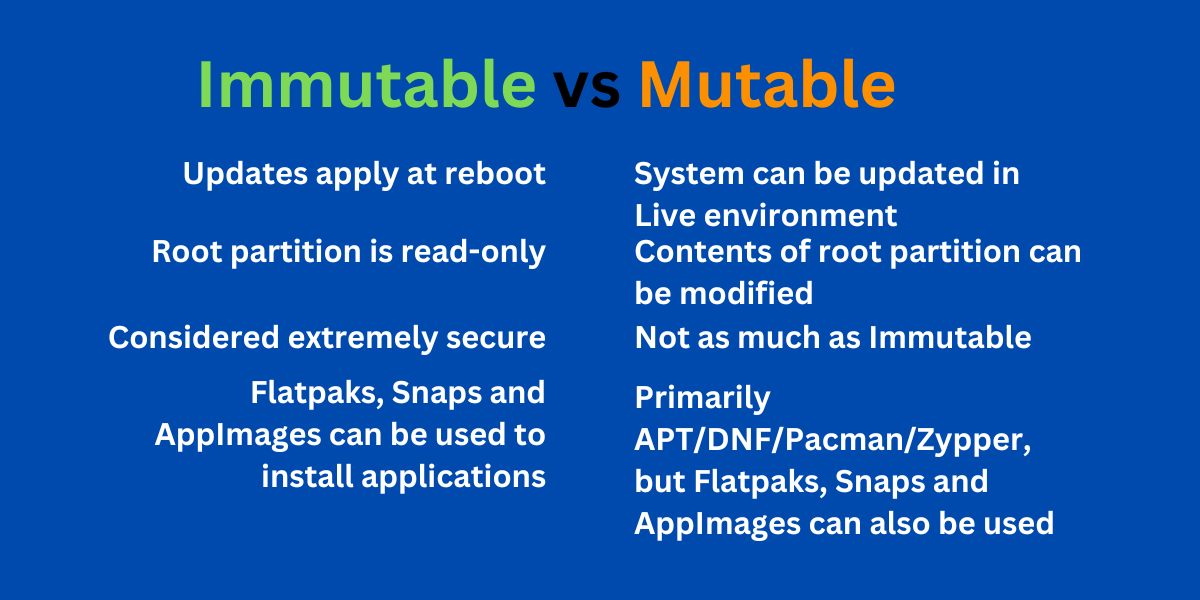I'm not really sure how the upsides of immutable distros work. I've been using linux for a long time and I'm not an expert but I've learned bits of things here and there.
I recently bought a steamdeck and it's running an immutable distro. I don't really know how to use software that's installed via flatpak because it's weird.
I have a game installed that runs badly (unplayable for me) through proton. I can launch it through q4wine if I switch the steamdeck into "desktop mode" and it runs much better.
If it wasn't an immutable distro I could pretty easily make a shell script that launches the game through wine. Then I could add that shell script as a non steam game and it would (I think) run well, and I'd be able to launch it from the non desktop side of steam OS that is a lot more streamlined.
There is something comforting to me about immutable distros though.
I feel like I don't remember half the shit I have installed on my computers. If I wanted to start cutting things out I don't know where I'd start. But with flatpaks I get the sense I could probably just wipe anything I don't use out of the flatpak directory and I probably wouldn't break anything.
